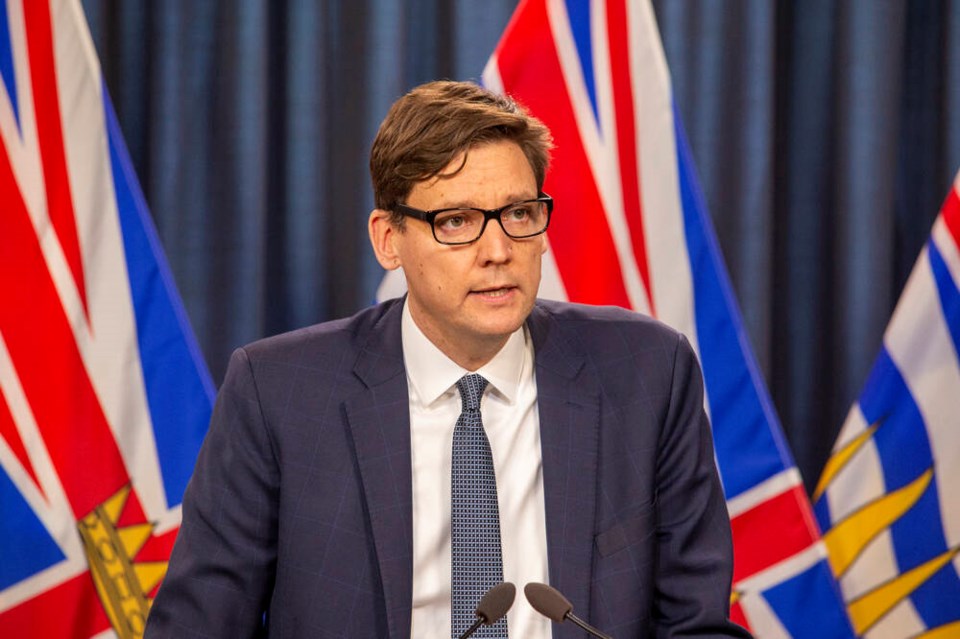VANCOUVER — B.C. Housing Minister David Eby doubled down on his promise to force municipalities to increase housing stock, during an in-person panel on Tuesday night called The Affordability Puzzle: Who has the Answers.
Eby said the province had two ways to take control of building projects within municipalities, plus the power to legislate action.
The first was to permit construction on provincial-government owned land and “ignore local bylaws” – which had happened twice so far, including in Maple Ridge where 2,000 units of social housing are being built.
The second power was held by the Minister of Municipal Affairs who could override a building project approved by a municipality if it was not deemed to be beneficial to the community – which could mean not enough density. This power has never been used, Eby said.
The other people on the panel were Joy MacPhail, chair of the Expert Panel on the Future of Housing Supply and Affordability, real-estate marketer Bob Rennie and Bernd Christmas, president of Nch’kay Development (the economic development arm of the Squamish Nation).
Eby said all mayors that he had spoken with had told him they wanted more density, but “actual results are the problem.”
He said some development projects in Vancouver had been in the works for eight years or more and the province was prepared to fight municipalities for control of approving housing stock through “mandate”.
MacPhail said that her expert panel had made five recommendations to increase housing stock and the first was for the provincial government to step in and expedite planning.
Another recommendation was to create a streamlined method for developers to pay for community amenities.
MacPhail said that the process as it is now amounted to extortion, where the municipalities had all the power in asking developers for cash in exchange for approving the development. That money is then used for parks and other city works.
She praised the City of Surrey saying council was having some successes, including the Fleetwood Community Plan, adding that neighbourhoods die without affordable housing.
“NIMBYism reigns and carries too much weight in decision making at the municipal level,” said MacPhail, who was appointed to the board of B.C. Ferries on Monday. She is also the chair of ICBC and on the board of Nch’kay Development.
Christmas said the Squamish Nation’s Senakw development at the south end of the Burrard Bridge did not need municipal approval and was therefore able to be ready five to 10 years sooner.
The project will contain 6,000 units in towers as tall as 59 storeys. The units will be mostly rental and would be owned by the Squamish First Nation and leased by the purchasers.
Christmas said developers should approach First Nations in order to have their plans dealt with more speedily.
Rennie said the federal and provincial government should provide subsidies to municipalities for every rental or social housing unit approved within 18 months. He said the foreign owners tax amounted to racism, and that it would be more impactful if it applied only to homes valued at $1.5 million or less.



